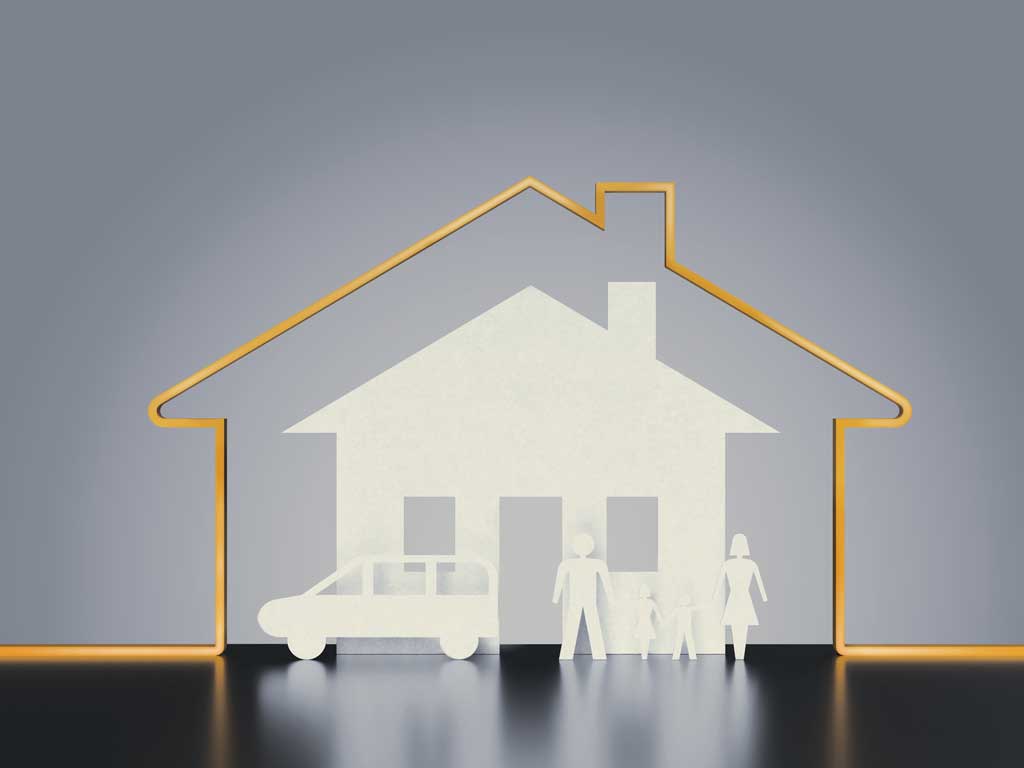Policy costs fluctuate widely across country, new research shows
By Erik J. Martin
CTW Features
Owning a home can bring with a lot of responsibility, and a lot of worries too, like fear of damage caused by Mother Nature, vandalism and getting sued by someone injured on your property. Thankfully, you can purchase homeowners insurance coverage to safeguard against these and other risks.
But new data show that the average cost for homeowners insurance can range from as little as $349 to over $2,000 annually, depending on the state in which you live.
Fresh research provided by GOBankingRates reveals homeowners’ insurance premiums vary considerably across the nation, with the median cost of policies in each state corresponding accurately with the median home values in that state. Put another way, states with higher-priced homes tend to have higher-priced insurance. The research further indicates that homeowners’ insurance costs are highest in Hawaii, the District of Columbia, California, Massachusetts and Colorado. Today’s cheapest rates, meanwhile, are found in West Virginia, Mississippi, Oklahoma, Arkansas and and Indiana.
Even in higher-priced states, however, you could be forking over more money than you need to for coverage, especially if you didn’t shop around, according to the professionalss.
“Just like you would with auto insurance, you want to make sure that you are getting the best rate possible and choosing a plan that fits you and your family’s needs,” said Kristen Bonner, GOBankingRates research lead in El Segundo, CAL.
Chris Hackett, senior director of personal lines for the Chicago-based Property Casualty Insurers Association of America, agrees that it’s important to periodically review your coverages, limits and premiums to ensure you’re not overpaying for your policy.
“It’s in your best interest to shop around periodically and get quotes from at least a few different companies. The property insurance market is very competitive, and you may be able to save a lot of money,” Hackett said.
When comparing quotes and policies, be sure to look closely at what’s included.
“Just because two policies from two different insurance companies are the same cost does not mean they are the same,” Bonner said.
For example, a policy from company A may only reimburse your damaged property for its actual cash value, meaning its replacement cost minus depreciation; company B, on the other hand, may offer a policy that includes guaranteed replacement costs, which will replace or rebuild your property without factoring in depreciation.
“Consumers need to make sure their policy covers the risks they face, as the last thing you want is or something to go wrong and find out too late that your policy doesn’t cover it,” said Joe Vahey, Erie Insurance vice president / product manager in Erie, PA. “An actual cash value policy subtracts for wear and tear and depreciation, which could leave you short of funds if your home were destroyed and you needed to rebuild it.”
According to Hackett, you can score a premium discount if you get your home and auto policies from the same insurer, yielding a discount of 15 percent or more; take measures to increase your home’s security, such as installing burglar alarms, which provides the possibly a 20 percent discount or more for a central system that alerts police / fire, smoke detectors, which provides up to 5 percent discount, and deadbolts; and keeping tabs on your credit.
“Also, make sure you’re addressing any errors on your credit report to improve your credit score and attractiveness as a borrower, which insurance companies look at,” Bonner said.
Vahey recommends consulting closely with an insurance agent to find a policy that provides the best value, which is the best coverage at the best price.
“An agent can help customize a policy based on your individual needs and make sure you’re receiving all eligible discounts,” he said.
Lastly, be cautious before opting for the cheapest policy available.
“The extra money you might pay each month to make sure you are properly covered for your location, home type, geographic- or weather-related concerns and property features could save you in the long run,” Bonner said.
© CTW Features

